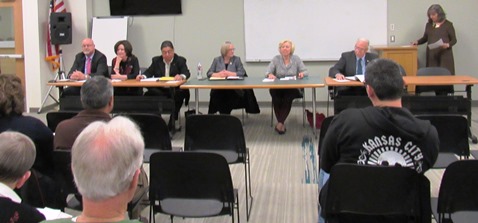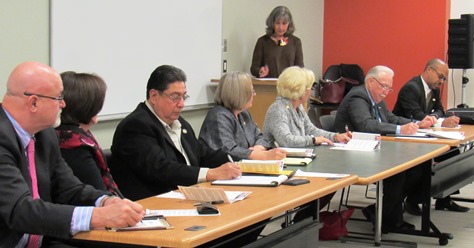
by Mary Rupert
One issue –school finance – is expected to dominate the Kansas Legislature during the next session.
Under an order from the Kansas Supreme Court to provide adequate funding for Kansas schoolchildren, the Legislature is looking at an increase in school funding, and a special legislative panel was meeting on the topic Monday in Topeka. Attorneys who won the Gannon school finance case, brought by the Kansas City, Kansas, school district and other districts, have said at least $600 million more is needed for schools.
There has previously been discussion of a tax increase to provide enough funding for the schools, and there also has previously been discussion of a “constitutional crisis” between the legislative and judicial branches if the Legislature doesn’t follow the court’s order.
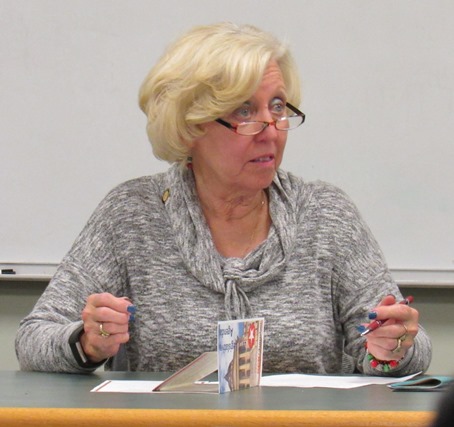
After Monday night’s Wyandotte County legislative forum, State Sen. Pat Pettey, D-6th Dist., a former teacher in the Turner Public Schools, said there is a feeling this session that the Supreme Court is not going to take the answer that there has been enough money spent already. The court’s order was strongly stated in a decision in October.
Sen. Pettey said she hoped the Legislature makes it a priority to address and decide school finance in the first couple of months and not wait until the Supreme Court deadline of April 30.
Currently, she believes there is no appetite in the Legislature for a constitutional amendment on school finance, she said. “There might have been two years ago, but not now,” Sen. Pettey added.
The possibility of a constitutional crisis, a faceoff between the legislative and judicial branch, was discussed by the Unified Government’s lobbyist, Mike Taylor, during a UG meeting with legislators on Dec. 7. Current reports are that a proposal has been drawn up by a Republican legislator to change the state constitution on school finance.
“We’ll have to see what happens,” Taylor said during the Dec. 7 meeting. “We could be seeing another tax increase for the state.”
While the Legislature passed a tax increase last year, some observers have speculated it will not be enough to provide the court-ordered increase in school funding.
There was no support expressed at Monday night’s legislative forum for cutting other programs in the state to provide more funding for education, however. Residents and representatives of organizations who attended the Wyandotte County legislative forum Monday night, Dec. 18, at the South Branch, Kansas City, Kansas, Public Library brought up several other programs that they also would like the Legislature to support or fund.
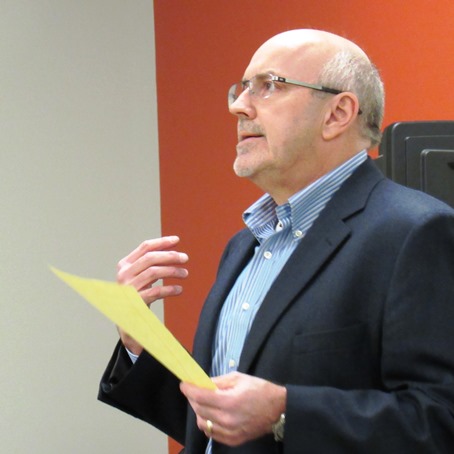
Mike Smallwood of the Kansas City, Kansas, Area Chamber of Commerce said the chamber supports a “Buy Kansas, Buy Local” effort to keep money in the state. He said from $15 million to $16 million was spent recently by three Kansas school districts out of state on day-to-day non-curriculum supplies. For every million spent, about five local jobs are created, he said.
The KCK Chamber also supports an origin tax, as opposed to the current destination sales tax, he said.
In addition, the KCK Chamber is in favor of keeping STAR (sales tax revenue) bonds active, as the STAR bond program has been very beneficial to Wyandotte County, he said.
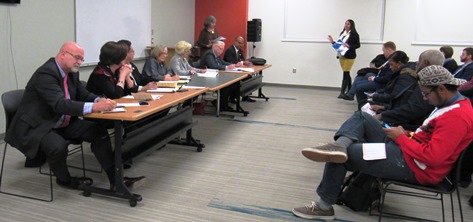
Rebecca Garza of the Wyandotte County Health Department told the legislators she had heard of a lobbying effort to prevent cities like Kansas City, Kansas, from passing local tobacco prevention laws. An ordinance was passed here in 2015 to raise the age to 21 for buying tobacco products. Garza asked the legislators to stand with the community on supporting cities that have raised the legal age for tobacco. So far, about 20 communities in Kansas have done so, she said.
Garza said a recent enforcement action with the Kansas City, Kansas, Police Department found 88 percent of the cashiers checked here were in compliance with the ordinance, requiring tobacco purchasers to be 21 years old.
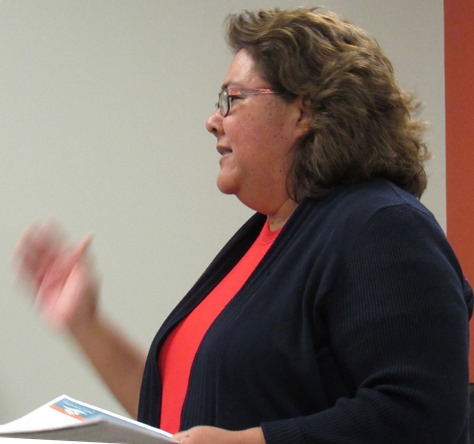
Irene Caudillo, appearing on behalf of Healthy Communities Wyandotte, said the organization found that social determinants were a large factor in Wyandotte County’s low score on health rankings.
Healthy Communities Wyandotte is advocating for the expansion of KanCare, supports a $1.50 raise in the tax on tobacco products, restoring community mental health funding for timely treatment for all, reducing the sales tax on food, and several other programs, including preserving the Children’s Initiative Fund.
Sen. David Haley, D-4th Dist., pointed out that the Legislature failed by a close margin in the last session to override the governor’s veto of KanCare expansion. He suggested that Healthy Communities may want to work with organizations in other communities to lobby those legislators for expansion.
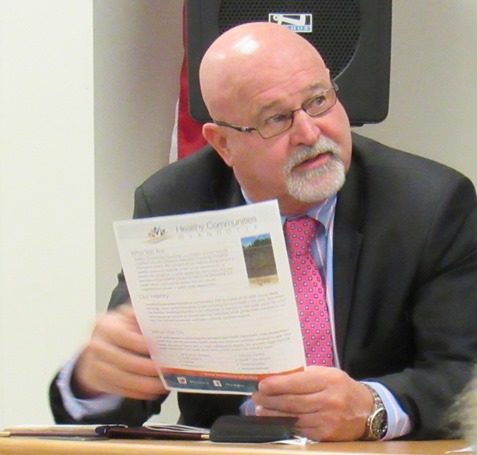
Rep. Stan Frownfelter, D- 37th Dist., said they would have to narrow down the Healthy Communities list and prioritize the items they wanted, with hundreds of millions of dollars more required in the budget this year.
“There’s no way, with everything going down this year,” he said. “You don’t get all of them. It was a nice Christmas list.”
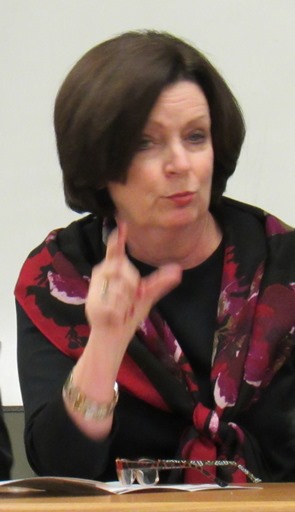
Rep. Kathy Wolfe Moore, D-36th Dist., said they were on the right road although it will take a long time to move that list, perhaps years.
Caudillo, also representing El Centro, where she is executive director, asked the legislators to continue to support funding for early childhood education.
She said El Centro also opposed any efforts to use the state’s funding and state troopers to enforce federal immigration laws, and also opposed any efforts to require local police to spend their resources to enforce the federal immigration laws.
Caudillo also asked for the legislators’ support of Deferred Action for Childhood Arrivals (DACA) students and the in-state tuition issue. She also asked for their support on juvenile justice issues.
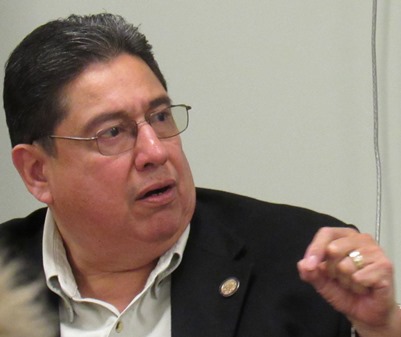
Rep. Louis Ruiz noted that there were some bills introduced last session asking the state Highway Patrol to join with federal officers to enforce immigration, and to take funds away from sanctuary cities. The bills did not advance, and there wasn’t debate on them last year. However, the bills could come back this session, with changes at the federal level.
Sen. Haley said he would like to see stronger reporting in Kansas concerning racial profiling cases.
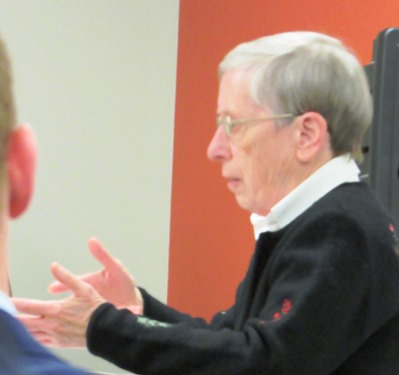
Sister Therese Bangert of the Sisters of Charity of Leavenworth asked the legislators to continue to support the Earned Income Tax Credit, which provides funding for low-income parents.
She also said they should look at increasing the use of diversion in sentencing. An ACLU study found that Kansas uses diversion as a sentence in about 5.5 percent of the cases compared to 9 percent nationwide, and in Wyandotte County, it is used about 5 percent of the time, she said. Diversion could save the state money, and it could result in a reduction of the prison population by 10 percent.
Also, she said Kansas should give greater consideration in placing foster children with relatives, and paying the relatives the same rate as foster parents. She said it helps children and saves the state money.
She also was against the death penalty, and expressed support for the Dreamers, children who were brought here from another country. In addition, she had questions about a public-private partnership for a new state prison building.
Alvin Sykes, a human rights activist, asked about legislation concerning wrongful incarceration and deprivation of human rights.
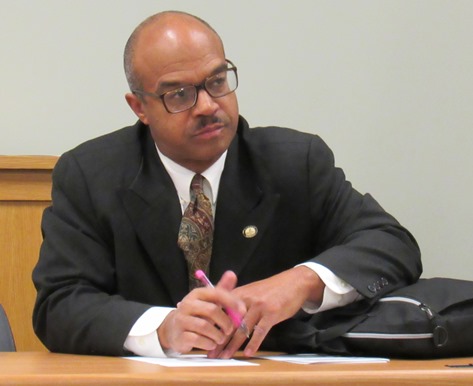
Sen. Haley said a bill was considered on wrongful incarceration compensation in the last session. However, legislators could not decide the proper amount for someone who had been wrongfully convicted. In Kansas City, Kansas, there was recently a case of a resident whose conviction was overturned after he spent a number of years in prison.
Sen. Haley said 32 states have laws that pay a person who has been wrongfully incarcerated. In Colorado, it is $25,000 a year, and in Texas, $80,000 a year, he said. He has also worked on a bill that would address deprivation of human rights.
In addition, legislators discussed ways to make Kansas government more open and transparent.
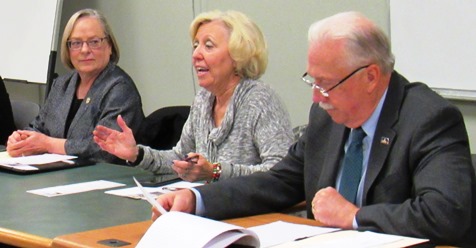
Elnora Jefferson asked about some economic development tools that would help urban areas, including an earnings tax and an urban enterprise zone. Rep. Pam Curtis said she has heard a proposal for using STAR bonds for urban development projects.
However, legislators noted that this year, there has been some discussion in the Legislature about limiting some economic development tools, including STAR bonds.
Sen. Pettey said Wyandotte County’s use of STAR bonds has been the good example for the state. Recently, some legislators have been questioning the use of STAR bonds in projects in other communities.
Rep. Tom Burroughs, D-33rd Dist., said the standards were held at a high level for Wyandotte County’s STAR bonds. He said STAR bond projects needed to meet the criteria of the STAR bonds, and not of the projects.
Sen. Haley said he didn’t anticipate more state assistance at the local level this year. He said some revenue now realized by the county from the payoff of the STAR bonds at Village West should be disbursed to other developments at the local level.
Those in attendance at the legislative forum included Unified Government Mayor-elect David Alvey and Edwardsville Mayor John McTaggart. Cindy Cash was the moderator of the forum.
The legislative session begins Jan. 8.
